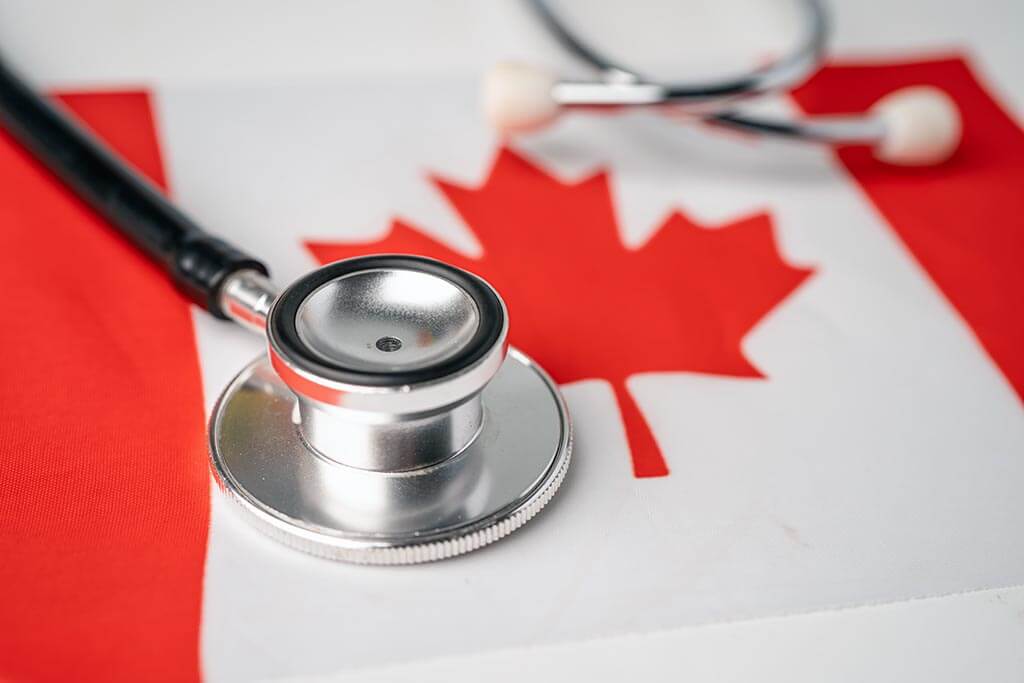- April 1, 2021
AFFORDABLE – QUICK – FREE
About Healthcare System
Canada’s universal healthcare system is regarded as one of the best in the world; ranking 30th globally for best healthcare. As a public-funded healthcare system, the Canadian government caters to the citizens’ and permanent residents’ medical needs through the taxes paid by taxpayers.
Considering how the permanent residents and citizens of the Great White North enjoy access to free healthcare, most citizens of other countries are forced to move up north to feast on this privilege. However, the Canadian government publicly funds the healthcare sector for Canadian citizens and permanent residents only.
The healthcare system in Canada does not offer free medical care to non-residents or citizens of other countries, thus the best option some of them have is to get their medications from Canada, which is apparently cheaper than the US and some other countries.
How Healthcare System Work in Canada
The healthcare system in Canada is regulated by the policies of the Canada Health Act of 1984. The main purpose of the Act is to provide universal and free medical care to citizens and residents “wherever they live in the country.” It is in this regard that the healthcare system in Canada is funded and managed by the 13 territories and provinces.
Each province is funded by the federal government on a per-capita basis. Owing to this, each province has its health insurance scheme, which every resident of a particular province is expected to know about to fully understand what medical services are covered.
Regardless of how different the insurance plan may be in each province, they all ensure that emergency medical services are available even to those who don’t have a health insurance card.

Acquiring a health card or Medicard in Canada is relatively easy to do as long as you meet the requirements. The only thing that seems a bit confusing is the fact that the processing of your application may take more time than you had expected.
The processing time is usually three months duration, and you are expected to get private health insurance while waiting for your health card. However, in Canada, public healthcare, also known as Medicare, is primarily available to citizens and permanent residents. Public health insurance only covers basic medical services.
Unlike other countries, the times to see a doctor may take a little longer than you had anticipated. And people like refugees, refugee claimants, and protected persons are covered by the Interim Federal Health Program (IFPH) until they qualify for health coverage by their provinces or territories. You can check what is and isn’t covered by the IFPH here.
Does Canada have free healthcare?
The healthcare system is normally considered free to Canadian citizens and permanent residents. However, this is far from the truth as taxpayers pay for virtually everything. The taxes are used in providing all the medical services which are considered free.
It is for this reason that most Canadians hesitate or refuse to regard their healthcare system as free because although it is free in the theoretical sense, it isn’t free in the practical sense of it. Also, healthcare is not entirely free because citizens may have to pay for services that are not covered by the public insurance scheme.
Some of these services include dental care, prescription drugs, and home care. Citizens and permanent residents have to pay for all the above services by utilizing private health insurance, which is an inevitable alternative for non-residents.
Healthcare in Canada for non-residents usually operates through a private scheme or health insurance. However, any person who works in Canada is guaranteed an employee health insurance scheme as part of the employment packages. Regardless of how grand this might seem, the charges or amount allocated to the employee’s health still get deducted from his salary most of the time.
Healthcare Cost in Canada

Considered one of the best healthcare systems in the world, the Canadian health sector is well funded to maintain its global stance. In 2019, it was projected that 11.6% of the GDP would go into the healthcare sector. This meant that over 7,000 CAD would be spent on a per-capita basis on healthcare in the country, That’s how much the Canadian government spends on healthcare.
Even with this, Canadian healthcare is regarded as one of the most expensive in the world because all the medical services or coverage is paid through taxes. However, in comparison with countries like the US, which ranks 37th for healthcare globally, the healthcare system in Canada is less expensive. That is why most US citizens prefer to get their medication from the Great White North.
Nonetheless, healthcare in Canada for non-residents is quite expensive because they can spend a whopping sum of 5,000 CAD or more a day in a hospital. Also, as regards seeing a doctor or requesting home care, the doctor fee may increase if a test is carried out or if home care is required. However, most residents and non-residents opt for private health insurance to get absolute coverage on the services not covered by the public scheme, which poses an increment in healthcare costs.
Canada Healthcare System vs US
If you are moving to Canada then you must know that the Canadian healthcare system is obviously very different from that of the US. The distinction between the two doesn’t entirely make one inferior to the other. It only states the facts regarding these two contrasting healthcare systems. So, here is a table showing the comparative analysis of the two healthcare systems.
| The US Healthcare System | Canadian Healthcare System |
| The healthcare system is not universal. | The healthcare system is universal. |
| Healthcare is provided by numerous public and private coverages. | Healthcare is provided by the government (NHI), but there are also private coverages. |
| Healthcare is not free, hence each time a person gets any medical care, he or she has to pay for it. | Healthcare is free to citizens and permanent residents. |
| Healthcare ranks 37th best worldwide in 2021. | Healthcare ranked 30th best globally in 2021. |
| So many Americans prefer private insurance coverage, but some elderly ones opt for Obamacare. | Public health insurance does not cover some medical services. Hence, some people opt for private health coverage to get access to these services not covered by the NHI. |
| Health insurance is based on income and age. | Health insurance is based on immigration status. |
| The life expectancy is low; 78.99. | The life expectancy is high, 82.66. |
| Wait times are dependent on the availability of adequate funding. | Wait times are determined by the availability of a certain service in a province and the individual’s needs. |
Pros and Cons of Canadian Healthcare System
Regardless of how smooth the healthcare system in Canada may be, there are also some traces of inefficiency that pervades the system. So here are the pros and cons of the healthcare system in Canada.
Pros
Universal healthcare for everyone
As earlier stated above, the healthcare system in Canada is universal, and although the system seems more favorable to the citizens and permanent residents, there is still some sort of healthcare available to all residents. Emergency services are available to those without a health insurance card and pensioners and refugees are also covered or given access to some level of healthcare.
Free healthcare system
Though this is debatable and not entirely true, the healthcare system in the Great White North is still free in the theoretical sense.
Reduced cost caused by educational programs
In Canada, several programs teach seniors and other Canadians how to take ultimate control of their health to prevent the chances of several diseases or health implications. Through these educational programs, the citizens and other residents are given the awareness which significantly leaves them in better health, and ultimately, reduces costs.
Quality healthcare
Having ranked 30th globally for the best healthcare, Canada guarantees citizens and non-residents excellent medical care. There are several well-trained health practitioners in the Great White North to guarantee quality treatment for citizens and non-residents.
Drugs are not expensive
This is one reason why people from other countries would travel or fly all the way to Canada to get their medications. Paradoxically, not all drugs are at a giveaway price in Canada.
Cons
Overly long wait times
The wait times, which are usually determined by the service readiness in a particular area and the needs of an individual, are often overly long. Most people have to wait for as long as three months to get medical cards. Also, the wait times are long to see a doctor.
It is expensive
Even with the free and universal healthcare system, healthcare is still very expensive in Canada. The citizens pay taxes for the ‘free’ medical care they receive. Also, doctor fees and other additional charges, add up to the expenses.
Unequal health coverage
The healthcare system is unequal because non-residents and refugees don’t get the same health coverage. Moreover, the healthcare coverage in Canada is often determined by one’s immigration status.
Limited coverage
In Canada, there is limited coverage on some services like dental care, mental health, sex reassignment surgery, and some therapies.
Conclusion
The healthcare system in Canada is free and accessible to Citizens, and with a life expectancy of 82.66, the healthcare system seems even more appealing. However, there is no rose without thorns, but all in all, the Canadian healthcare system is one of the best in the world, and it truly guarantees quality medical care.




